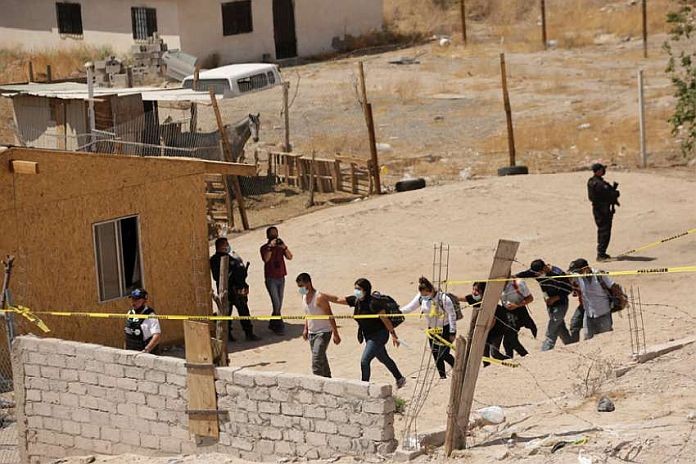By Quinton Amundson (The Catholic Register) – When appraising the landscape through a global lens, a case can be made that 2021 has been a banner year in the fight against the evil, entrenched practice of human trafficking.
Among the landmark sting task force victories are Operation Reclaim and Rebuild (Jan. 26 to Feb. 1) and Operation Liberterra (July 5-9). The former was California’s annual statewide anti-trafficking initiative. This year more than 100 federal, state and local agencies collaborated to rescue 39 victims and execute 450 arrests.
The International Criminal Police Organization (Interpol) led the latter operation. Forty-seven countries teamed up to rescue 430 victims, identify 4,000 irregular migrants and secure 286 criminal seizures. The success of this bust also provided the intelligence to launch 60 new intercontinental investigations.
Canada did not factor into either of the above operations, but is perhaps poised to accomplish more in fighting against this felonious enterprise in the future.
One of the foremost Canadian experts is Patricia Vargas, a director of children, family and community service at Catholic Social Services (CSS) in Edmonton since 2018.
In May 2020, she was appointed to a government of Alberta Human Trafficking Task Force chaired by Canadian country music star Paul Brandt, who is acclaimed for his #NotInMyCity movement to raise awareness and compel action against sexual exploitation and trafficking of children and youth.
Vargas was a natural fit for this assignment as she united eleven different nations to develop protocols and frameworks for transferring victims of human trafficking between international shelters as a board member for the Global Network of Women’s Shelters. She has also participated in a multitude of task forces, think tanks and roundtables about human trafficking through the years.
“I think I got on the radar for the task force because I publicly spoke about the issue, and I would represent the people who work with trafficking victims,” said Vargas. “Catholic Social Services was so supportive in letting me be on the committee so I could represent the people we serve the best I could.”
Vargas’ work with victims of trafficking extends way past her recent posting with CSS. She served as executive director of the Strathcona Shelter Society emergency haven for women and children from 2001 to 2018. Before that, she developed web content on behalf of the University of Alberta’s legal studies program on abuse of women and immigrant women.
While not permitted to disclose everything about the task force’s activities, findings and recommendations, Vargas did reveal that it listened to presentations from 92 individuals with lived human trafficking experiences.
“You listen to each of their stories and you honour them by making sure their voices are always with you when you are trying to formulate recommendations,” she said.
She and her colleagues also studied current legislation, pored through reams of studies and literature, examined other provinces and hotbed jurisdictions and networked with other experts for the report to the provincial government, filed just under a month ago.
Read the full story here.





